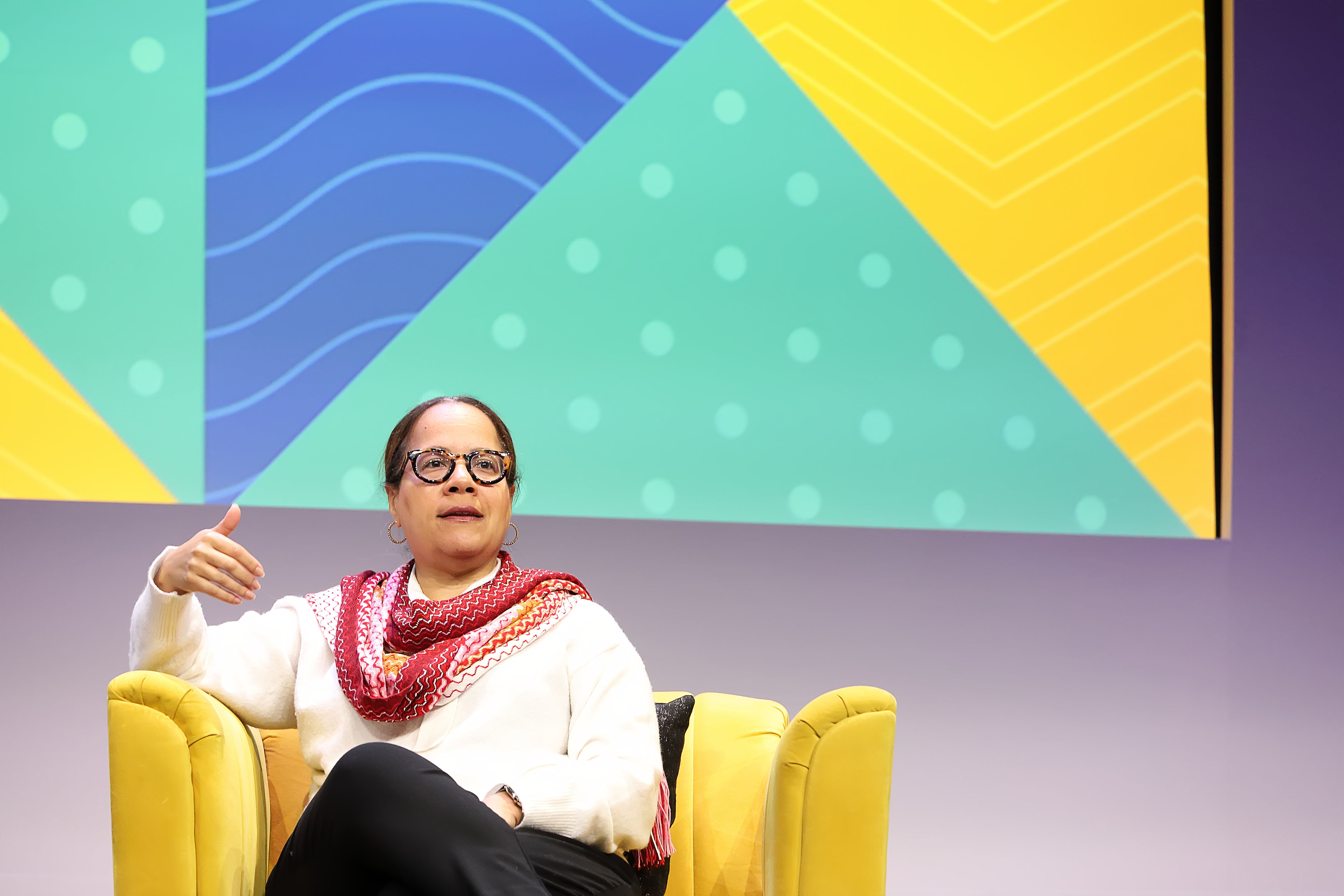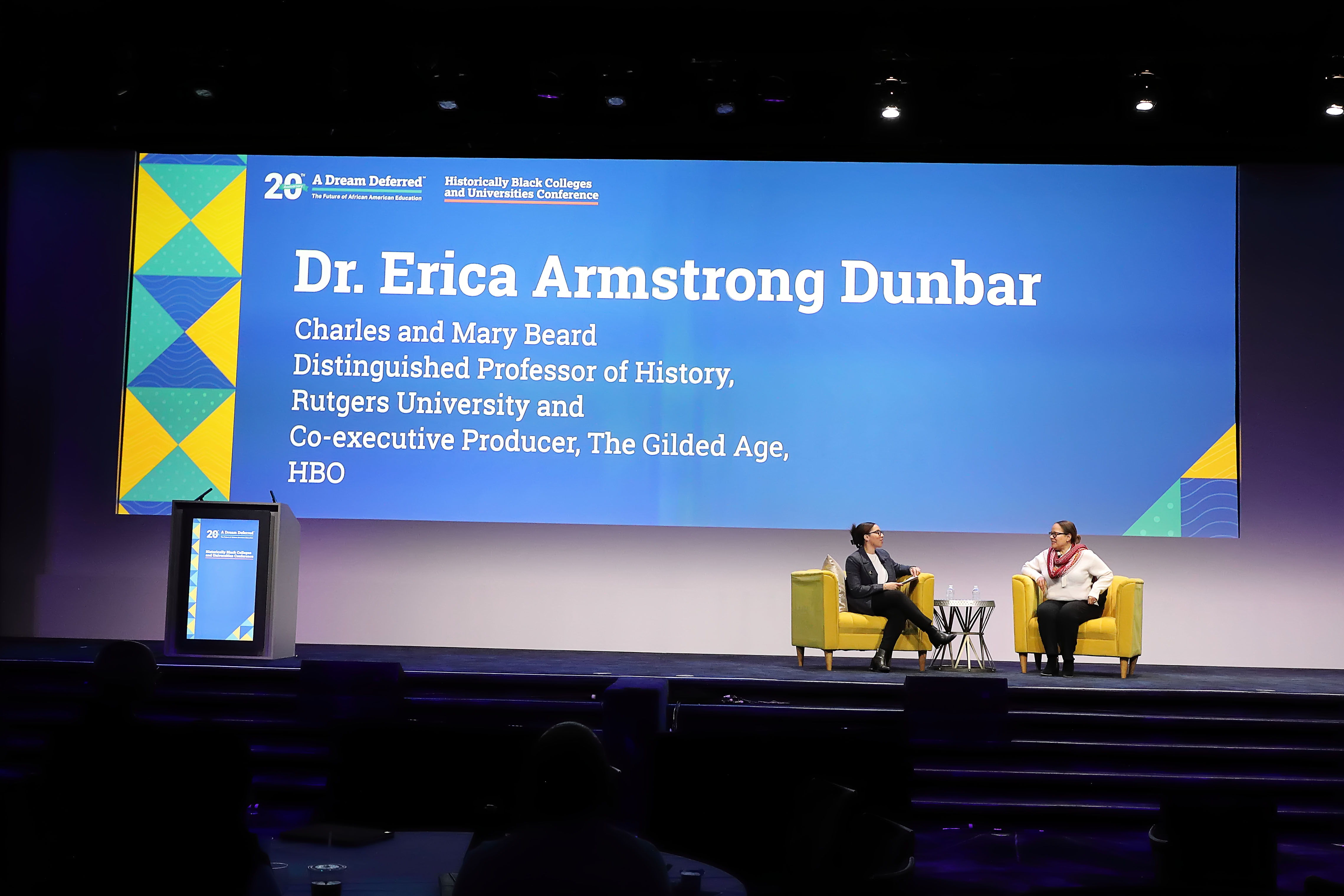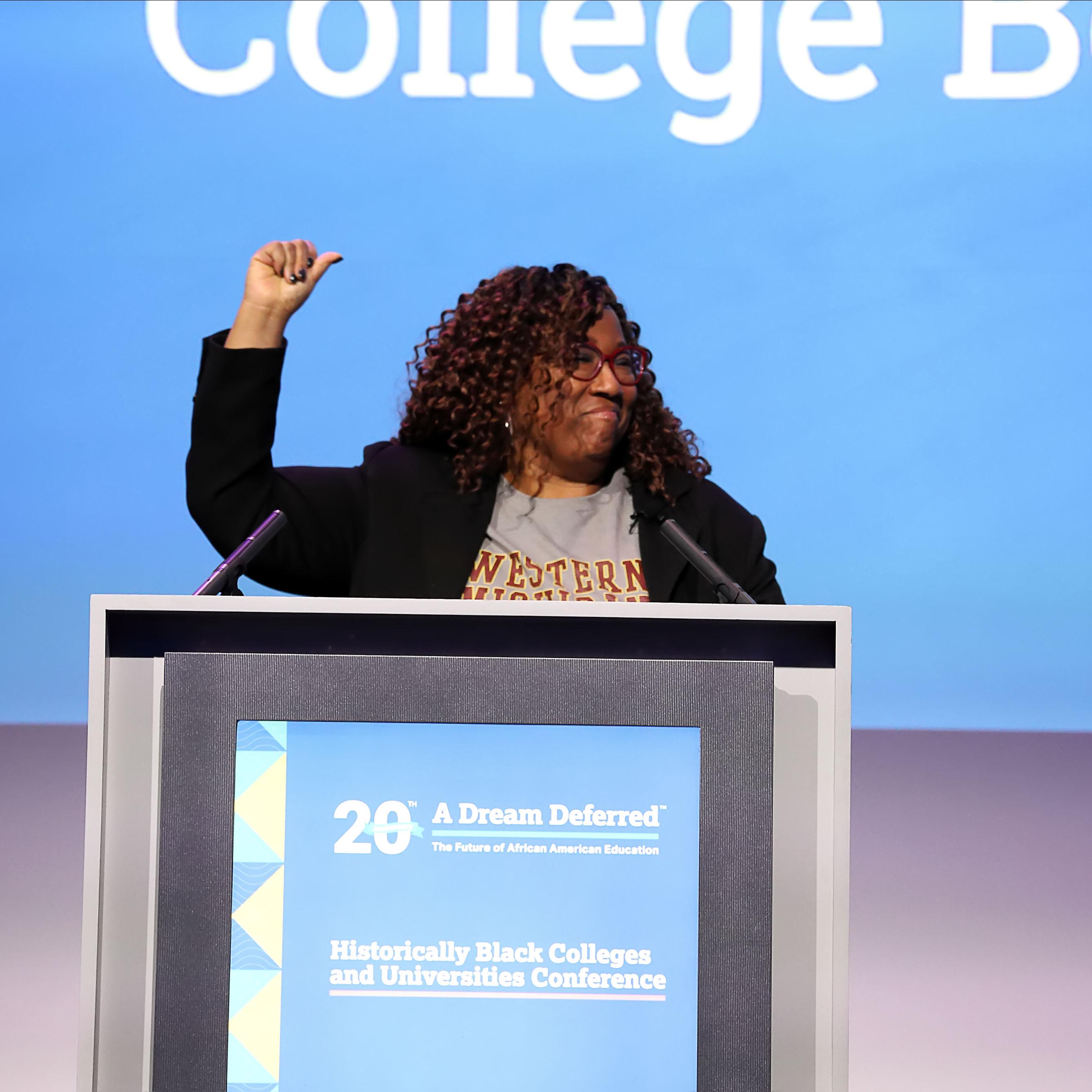A Dream Deferred | HBCU Conference 2024
She Came to Slay: Historian Erica Armstrong Dunbar on Centering the Narrative on Black Women
Reveling in the rich, fascinating lives of Black women—on the page and on the screen—is Armstrong Dunbar’s way of building hope and resilience for the present. “We can and we must continue to center the lives of Black women, of Black people generally,” she said. “I think right now we all need a little strength.”

Pictured: Dr. Erica Armstrong Dunbar (right) with Dr. Brandi Waters (left) on the plenary stage at A Dream Deferred
Years ago, Dr. Erica Armstrong Dunbar was scrolling through 18th-century newspaper archives when she came across an advertisement for an enslaved woman named Ona Judge. She knew almost immediately that she’d stumbled on something remarkable.
“It was an advertisement that read something like, ‘Absconded from the household of the president of the United States,’” Armstrong Dunbar recalled. Ona Judge “had been the human property of George and Martha Washington.”
Ona Judge had escaped from Mount Vernon and remained free the rest of her life. Her story provides a powerful historical counterpoint to the often-told narrative of the nation’s first president. Armstrong Dunbar turned the tale of Ona Judge into an acclaimed book, Never Caught. This book is part of her lifelong project to provide “a richer, nuanced understanding of how Black people built this nation.”
In the A Dream Deferred™ plenary conversation with Dr. Brandi Waters, the College Board’s senior program manager for AP African American Studies, Armstrong Dunbar recalled a childhood watching Alex Haley’s Roots on network television and seeing the landmark documentary Eyes on the Prize as a first-year student in college. It left her with the impression that there were whole swaths of American history going untold, especially around the contributions of Black women.
As Armstrong Dunbar recalled:
I walked away saying, "I’ve learned so much, and I want to be that person on the film." The person who gets to stand in front of people, sit in front of people, and be the person who gets to recite, explain, introduce our history—Black history.
Erica Armstrong Dunbar, Charles and Mary Beard Distinguished Professor of History/Co-Executive Producer, Rutgers University/The Gilded Age, HBO
That hope proved prophetic. Now, she not only produces original scholarship and writes popular history books for a mainstream audience, but also serves as a producer and historical consultant on The Gilded Age, the popular HBO series. In that venue, Armstrong Dunbar makes history come to life through characters and storylines that aren’t often a part of big-budget productions.
She explained a clip from the series about school integration in 19th-century New York, and the complex and conflicted feelings many members of the emerging Black middle class felt about merging their schools with white institutions. “We must find ways in all of our media avenues, whether it’s television, film, or podcasts, to present representations that are unfamiliar but accurate,” she said. “For me, it’s an extension of the work I do.”
Her most recent book focuses on the life of Harriet Tubman, aiming to deepen the popular image of the heroic freedom fighter. She emphasizes the richness of Tubman’s life as a mother, a wife, and a public figure grappling with her role in the broader movement against slavery. With an eye to reaching younger readers, she titled the book, She Came to Slay: The Life and Times of Harriet Tubman.
If we really want to pull these younger folks in, if we want them to understand the importance of history … then they have to see it as relevant. They have to have connections to it.
Erica Armstrong Dunbar, Charles and Mary Beard Distinguished Professor of History, Rutgers University and Co-Executive Producer, The Gilded Age, HBO




